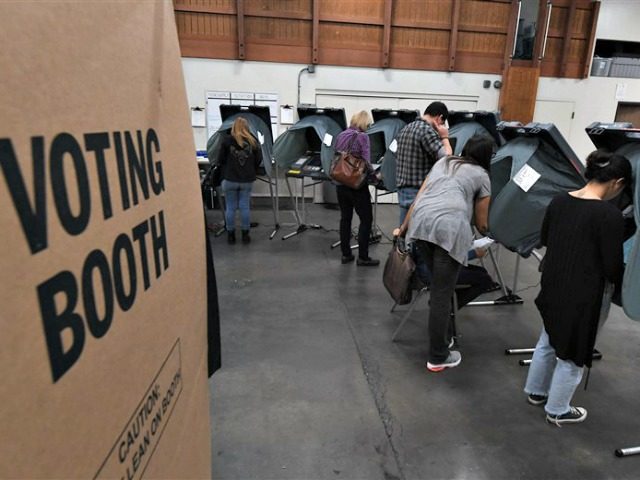Congressional Democrats are seizing on the Coronavirus crisis to finally lay longstanding progressive election reform goals into federal standards in time for the 2020 presidential election. Though not a total federal takeover, various bill elements empower third-party groups to enforce new requirements against states if the Trump Justice Department cannot or will not enforce reforms like mail ballot harvesting.
The Pelosi Coronavirus aid package contains five primary sections that have Republican lawmakers up in arms.
Mandated allowance of ballot harvesting is garnering the most attention with respect to changes in actual voting. Current state laws vary widely on the practice. Twenty-seven states allow an absentee voter to designate an agent to return their ballot—only 12 of these place limitations on the number of ballots a single person can return on behalf of others. Even within those dozen, ballot return limits vary, according to the National Conference of State Legislatures (NCSL). Another nine states (including battlegrounds like North Carolina and Michigan) limit agency to only family members. Another 13 states (like Colorado and Georgia) are silent on the question. The Pelosi language overrides all local laws and removes any ballot return limits.
The risks for error in mail balloting are heightened in areas of the country under disaster or emergency declarations. The bill requires that absentee ballots be sent to all registrants on file in those jurisdictions automatically—regardless of whether the voter roll is loaded with outdated entries. The bill does not carve an exception for “inactive” registrants, which are designated by counties as having outdated or incorrect contact information on file and have been consecutively absent from the polls for years. Deceased registrants are sometimes in this category because next-of-kin fail to notify officials of the death.
The second blockbuster reform mandates that prospective voters be able to register on Election Day within the polling place. Roughly 21 states have some similar measure of same-day registration already on the books. But as the NCSL notes, new adopters spend years building out their systems—not a few months. This section contains two more alarming aspects: states are limited against asking for personal identifying information like full Social Security numbers; and cannot make applicants prove eligibility beyond an attestation that they are legally able to vote. The bill provides no leeway for states to withhold normal counting of a ballot until eligibility is fully verified, like even California requires.
The Pelosi bill also sets uniform standards on polling places. Sites will need to be walkable from public transit stops in addition to other vaguely worded requirements. Provisional ballots must also be counted no matter where they are cast in a state—so long as the person was otherwise eligible.
Despite vague language and unprecedented deadlines to establish systems within months instead of years, proponents of the transformative changes are armed with federal litigation rights where they see fit. Private rights of action are attached throughout the bill to ensure that a state falling behind a mandate or refusing to follow outright can get hauled before a judge by the aggrieved party. During the early hours of the unveiling, several left-wing groups with established histories of backing the reforms began to signal broad support.
Before the contents of the Pelosi bill began to widely circulate, more than 150 left-leaning nonprofits issued a demand letter for the reforms—all of which are now before Congress.
Groups like the NAACP Legal Defense Fund, MALDEF, and more signing on to the letter are regulars in reshaping election laws within courts and legislatures away from traditional federalist models. One group is currently suing Ohio to extend voter registration deadlines amid the Covid-19 crisis. Suits like the one against the Buckeye State are effectively guaranteed to proliferate with the passage of the Pelosi language.
Bill text aside, Tuesday afternoon reporting on Capitol Hill suggests that Democrats’ bottom line will be some form of universal vote by mail in time for the 2020 General.
Logan Churchwell is the Communications and Research Director for the Public Interest Legal Foundation. He was also a founding member of the Breitbart Texas/Border and Cartels team. Sue Becker, an attorney for PILF, contributed to this article.

COMMENTS
Please let us know if you're having issues with commenting.